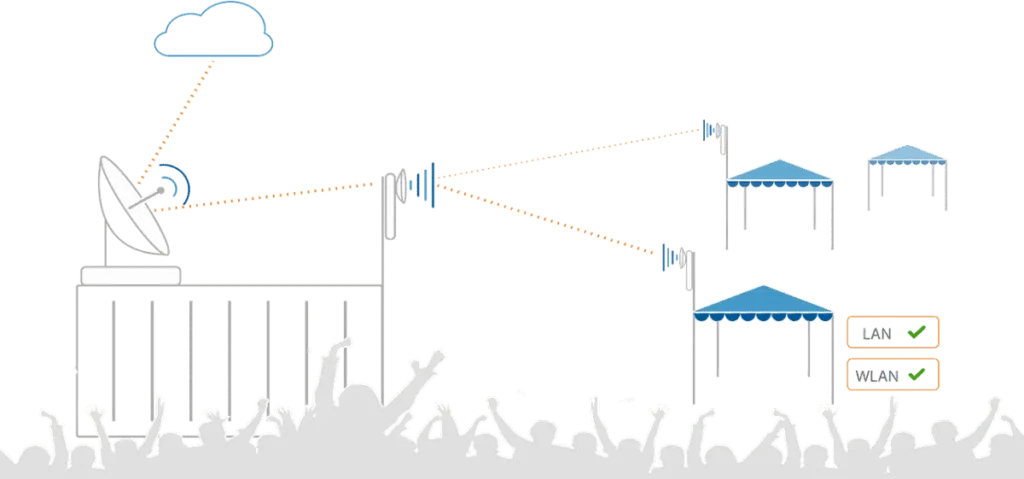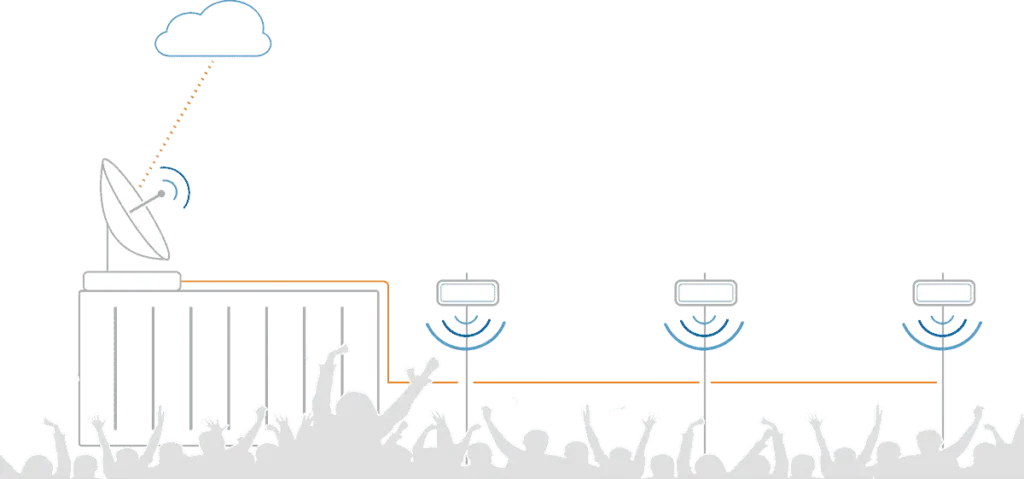1. cashless payment
The corona pandemic has given cashless payment a major boost, even in Germany. And at events in particular, where guests can't easily withdraw cash, alternative payment options play a major role. At a festival, it can quickly happen that your guests run out of cash. If it is then possible to pay at food stands, merchandise and other points of sale with a credit card or cell phone, this is of course a huge relief for guests. Basically, there are two different approaches to cashless payment.
2. bar management
Using WiFi , merchandise systems can be organized more efficiently. Which goods are needed at which bar and when? Who has a shift and when? How many sales have been made at each point of sale so far? With a robust Internet connection, this information can be captured in real time and accessed centrally from any location.
3. digital tickets and guest lists
Most guests order their tickets online these days. But the organization of guest lists and press accreditations is now also up and running. Be it event planning tools, Google Docs or a classic Excel file stored in a cloud somewhere. At the event itself, of course, you still want to access this information. Storing everything offline on USB sticks is certainly not an option, because this way the data is already outdated after a few hours.
On site, the following questions should not even arise:
- Is the ticket valid?
- Where is the current guest list?
- Who else needs to be accredited at short notice?
4. internal communication
At events with many visitors, the public mobile network often reaches its limits. For visitors, this is a digital detox at best. For the organization, however, it is an extreme hindrance if communication among each other is disrupted. Radios are an expedient solution here. However, you need a sufficient number of devices for this, while every employee is guaranteed to have their own cell phone in their pocket. If there is event coverage atWiFi, employees can use all common forms of communication just as they do in everyday life. A WiFi coverage at certain points, such as the backstage area or the entrance, can already be sufficient here.
5. safety
Security at major public events is an important issue that is increasingly being addressed with digital tools. A solid data infrastructure makes it possible to significantly increase security and make the work of those responsible easier.
6. happy staff - with WiFi on the premises
Last but not least, it is a nice option for the crew to have WiFi access at the event during the long time from setup to tear down. We know from our own experience that it can sometimes be quite exhausting to be at an event for a week or more. The data volume of the cell phone is enough for a few messenger messages and some music via Spotify. But YouTube videos or even Netflix series suck up the data volume in just a few hours. With eventWiFi in the backstage, on the other hand, you can watch a movie or series in the evening or simply surf the Internet at your leisure. WiFi feels a bit like being at home.


















